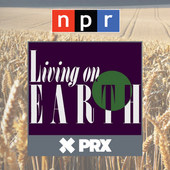The New York Times Magazine- Talk
She Changed the Way We Eat. She Wants to Fix Our Democracy, Too.
With the publication of her best-selling book, “Diet for a Small Planet,” in 1971, Lappé argued for the health and ecological benefits of a plant-based diet and surfaced the harmful links among meat production, increased societal consumption and environmental degradation — all of which is now widely taken as common wisdom. Lappé, a recipient of the prestigious Right Livelihood Award, often referred to as the alternative Nobel Prize, has also long been focused on the equally fundamental subject of how to make our democracy work better for more people. “I want to shift people away from thinking: Democracy, that’s for somebody else. That’s policy, wonky stuff,”
December 21, 2019
The New York Times - Style
The Godmother of ‘Plant-Based’ Living
"On a recent afternoon, Ms. Lappé welcomed a reporter into her home in a leafy town outside Boston to talk about the way we eat, then and now. Despite her success — “Diet” has sold more than three million copies, and she was named a recipient of the Right Livelihood Award, a kind of alternative Nobel Prize — Ms. Lappé, or Frankie to her friends, is a down-to-earth, cheerful woman of 77. She greeted her guest with a warm bowl of Comforting Carrot and Onion Soup, one of the recipes included in “Diet,” which she specially prepared that morning..." Read More
November 20, 2021
The Boston Globe - Food
‘Diet for a Small Planet’ was ahead of its time. Now it’s more relevant than ever.
"When 'Diet for a Small Planet' came out in 1971, eating less meat was an important choice, [lappé] says. Today it is a necessity. Our planet is on the brink. Our democracy is under siege. We are in the middle of a pandemic. We are reckoning with systemic racism. Lappé is not an optimist. But she calls herself a possibilist. 'Honest hope, as opposed to wishful thinking, demands hard work,' she writes. Read More
By Devra First
October 6, 2021
Washington Post
‘Diet for a Small Planet’ helped spark a food revolution. 50 years later, it’s evolving.
" 'I felt from the beginning that food had a special power,' Frances Moore Lappé says. “It viscerally connects you to the earth and to people. I remember learning that the word ‘companion’ is rooted in the French word for bread, the idea of breaking bread with another person. What we eat, others notice.”
By Kristen Hartke
September 21, 2021
PRESS
RADIO & PODCASTS
Hear from Small Planet on various radio interviews and podcasts.
Be sure to check out and subscribe to Anna's Real Food Reads Podcast!






.png)























